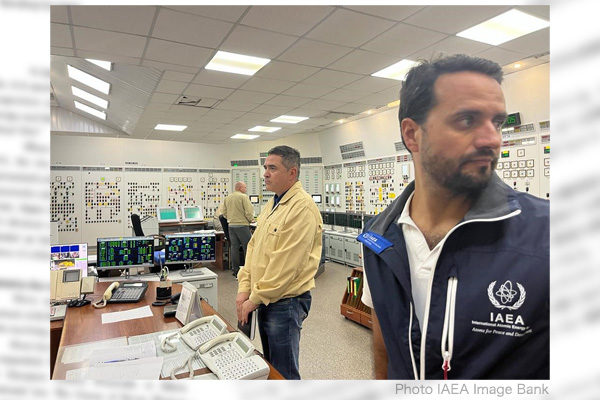The Zaporizhzhya nuclear power plant in southern Ukraine has been in an extremely critical situation since it was occupied by Russian forces in March. Taking the situation seriously, the International Atomic Energy Agency has sent Director General Rafael Mariano Grossi and other officials to inspect the status of the nuclear power station and Russian occupation forces.
Potential meltdown risks
The Zaporizhzhya nuclear plant was seized soon after Russia launched its invasion of Ukraine. While being interrupted by Russian soldiers, Ukrainian engineers have managed to operate two of its six reactors, providing some 20% of total Ukrainian electricity supply. Russian forces have placed military vehicles in nuclear plant buildings, making the plant a de facto military base.
Power transmission cables for the power station have been cut at least twice, forcing emergency diesel power generators to provide electricity for cooling the reactors. Transmission cables were restored, avoiding terrible developments. If they are not restored, diesel oil would have to be transported by shuttle with tanker trucks for emergency power generators. It is difficult to continue fuel transportation over a long time in wartime. If fuel transportation is discontinued, nuclear reactors may melt down with all alternating-current power supply lost, as seen in the Fukushima Daiichi nuclear power station accident on 2011.
Such development could cast a damper on the recently growing recognition of the need for nuclear power in many countries of the world and exert pressure on Japan to retract Prime Minister Fumio Kishida’s recent instruction to consider development and construction of next-generation nuclear reactors.
Japan can provide air purification systems to Ukraine
Ukrainian President Volodymyr Zelenskyy has demanded Russia to withdraw its troops from the Zaporizhzhya nuclear power plant and demilitarize its vicinity. IAEA Director General Grossi responded that the demilitarization should be discussed bilaterally or at the United Nations Security Council. But bilateral talks between Ukraine and Russia have been suspended, and the Zaporizhzhya demilitarization is clearly not an issue that can be resolved at the UNSC where Russia is a veto-holding permanent member.
The IAEA on a mission to secure the safety of nuclear power plants and forestall their accidents must demand Russia to promptly withdraw from the nuclear plant. If the Russians reject such demand, the IAEA should impose sanctions and refuse to approve Russia’s nuclear power plant exports to abroad.
Japan has something to do to prevent a potential Zaporizhzhya catastrophe from spilling over. Specifically, Japan can provide Ukraine with air purification systems to prevent radioactive contamination. The air purification system on a large trailer has been developed by the Tokyo Institute of Technology and a consortium of companies with government subsidies. It was exhibited at a motor energy symposium of the Japan Society of Mechanical Engineers. Japan should provide Ukraine with a number of these systems to prevent radioactive contamination in Europe in case of an emergency. Japan can internationally contribute technology for peaceful use of nuclear power, instead of munitions.
Tadashi Narabayashi is a specially appointed professor at the Tokyo Institute of Technology and a director at the Japan Institute for National Fundamentals.


